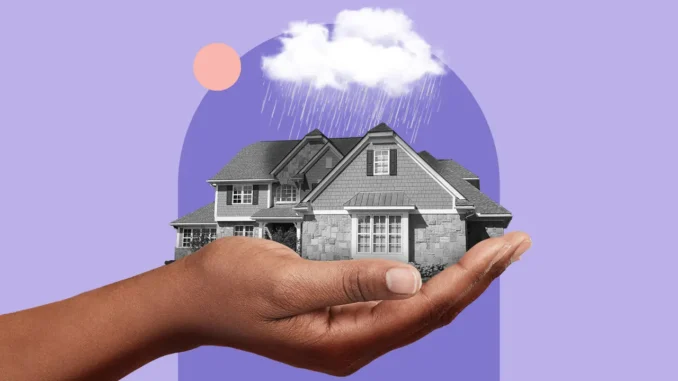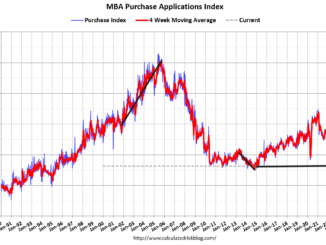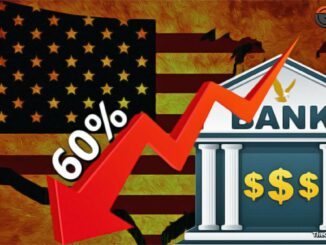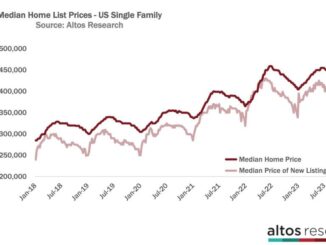
Today’s high inflation has triggered aggressive moves from the Federal Reserve, which has many economists worried that we’re headed toward a recession. These concerns also come at a time when home prices are steep and mortgage rates are rising, causing home shoppers to weigh whether they should buy now, or wait to see if home prices drop from a potential recession.
The U.S. consumer price index (CPI) rose by 6% in February from a year ago and 0.4% from January, according to the Labor Department. The increases were in line with what many had predicted for the month.
In the meantime, the Fed has raised the federal funds target rate over seven consecutive meetings since March 2022 to contain inflation and has signaled that it intends to continue doing so until it reaches its 2% inflation target. Such actions indirectly cause mortgage rates to jump as well.
What Happens to Home Prices in a Recession?
Home prices generally fall during recessions, with home values slipping in four out of the five major recessions between 1980 and 2008. Considering that a recession is a prolonged, widespread economic downturn that discourages consumers from financing a new home, it makes sense that weaker buyer demand would soften prices.
Even so, recessions are volatile periods. Home prices can rise or fall depending on various factors, including the outlook for the labor market, the unemployment rate and the impact on household incomes, says Odeta Kushi, deputy chief economist at First American. However, Kushi says that the direction prices go mostly depends on where you shop for a home.
“The reality is home prices don’t necessarily decline just because of a recession,” says Kushi. “Ultimately, supply and demand dynamics dictate the outcome for prices, and these variables will differ based on geography.”
Home Prices Could Remain High Regardless of a Recession
The housing inflation storm that pushed buyers out of the market seems to be decelerating. Even so, experts say prices will remain elevated, with CoreLogic forecasting a 3% year-over-year increase in national home prices by the end of 2023. For buyers keen on buying a home, regardless of whether there’s a recession, waiting for a big price drop could be a losing game.
The number of homes for sale in January jumped by 65.5% compared to a year ago, with active listings increasing by 13.1%, according to Realtor.com, Nonetheless, inventory remains below pre-pandemic level, which is propping up prices.
The national median listing price for active listings in January was up 8.1% from a year ago, landing at $415,000. While this is down from the eye-popping June 2022 high of $450,000, sellers are still expecting top-dollar for their property.
“Based on the current amount of inventory on the market, and the level of active buyers, I don’t foresee there being a substantial drop in the prices,” says Mike Biryla, a New York-based real estate agent at The Agency.
Nevertheless, Biryla says that sellers are willing to make price adjustments based on market conditions and high interest rates.
Should You Buy a House Now Or Wait For a Recession?
Advice is mixed as to whether now is a good time to buy. Unlike the last recession during the 2008 financial crisis, we now have red-hot inflation and employment remains resilient. The job gains in February exceeded most economists’ expectations.
“Normally if we get into a recession, the Fed would pour money into the market. This time, the Fed is not going to do that because inflation is high,” says Ken Rosen, chairman of the Berkeley Haas Fisher Center for Real Estate and Urban Economics. “This is going to be a slower response and inflation is going to take time to come down.”
Regardless of market conditions, buyers should consider their budget, income stability and emergency funds before they jump into today’s housing market.
Additionally, how long you plan on staying in the home can also help you decide whether to buy now or wait. For people who don’t plan on staying in the home for at least five years, buying now can mean losing money if the market backslides and you want to sell.
On the other hand, trying to time the market can mean missing out on your dream home. If rates continue to rise and home prices don’t drop enough to compensate for high loan costs, you could end up pricing yourself out of the market.
“Buying a home during a recession really depends on your overall financial stability, and that includes job stability,” says Biryla. “If you have ample savings, and a good steady stream of income, buying during a recession can be an opportunity to get an incredible deal on a home.”
Biryla emphasizes that the goal is to get the lowest price on a home regardless of a less-than-ideal interest rate and that you always can refinance when rates become more favorable.
Is Now Still a Good Time to Sell?
Homeowners on the fence about selling their homes may have missed the peak sales point, but that doesn’t mean they should wait. Most real estate experts agree that even though prices are on a downward trend, sellers should watch the market closely for windows of opportunity, as the housing market landscape can change quickly.
“[W]hile the market shifted over the past six months or so to become a bit more of a buyers market, we are seeing a shift back to multiple offers coming in on good properties,” says Todd Sheinin, chief operating officer at Homespire Mortgage. “The over asking price isn’t coming in quite as high as it was before, but it is still being driven up by multiple offers.”
Where Home Prices Could Drop
Some markets are at risk of home prices declining, according to the Special Housing Risk Report by ATTOM Data.
New Jersey, Illinois and inland California have maintained a presence for several quarters in the report, which identifies the nation’s most vulnerable housing markets. The three states contain 31 of the 50 counties at the highest risk of price deterioration, with Chicago and New York City home to seven and five vulnerable counties, respectively. The report measured home affordability, unemployment and other economic indicators in the fourth quarter of 2022.
“With the U.S. housing market cooling off considerably since the middle of last year, some areas of the country continue to show signs of being more at risk of a larger downturn than others,” said Rob Barber, chief executive officer at ATTOM, in a statement. “That’s based on several key factors that can either boost or damage local housing markets, including unusually high home ownership costs, foreclosures and relatively weak homeowner equity.”
Source: www.forbes.com
ENB
Sandstone Group



